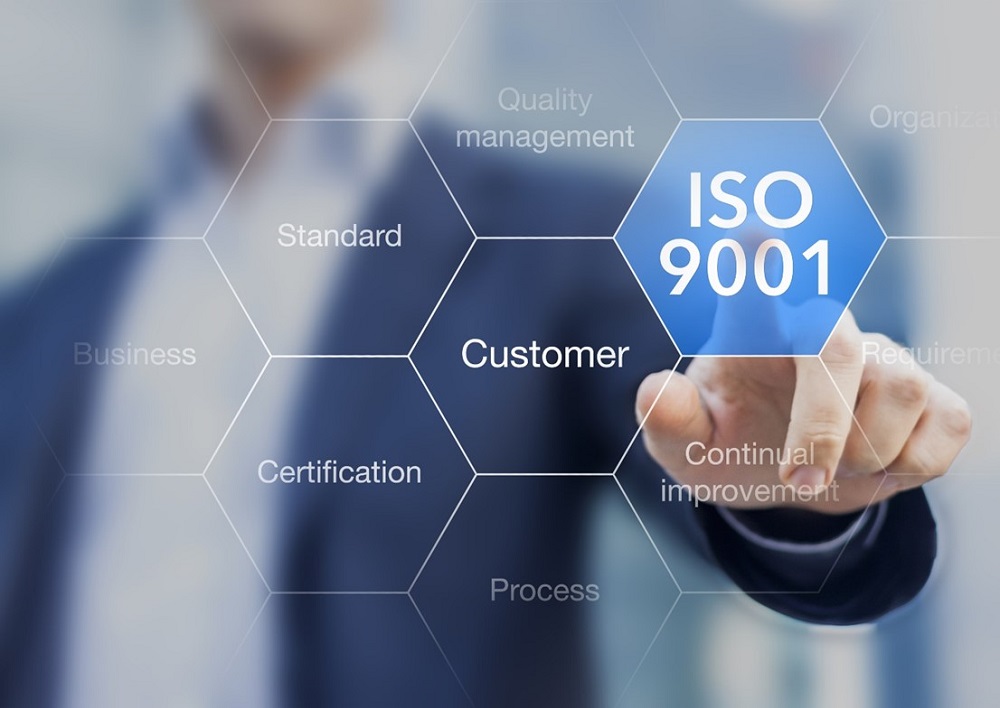Task Force
Standards Observatory
Background
Digitalisation, Industry 4.0, IoT, AI and many other influencing factors are forcing companies to adapt quickly, leading to the development of new business models and applications. As a result, intellectual property (IP) management is being radically rethought, with companies using IP strategies to gain competitive advantages over the last years. However, digitalization and changes in business ecosystems are creating complexity that even larger companies struggle to master. Dealing with IP risks is also a challenge for entrepreneurs, and personal liability can occur if management fails to establish suitable damage prevention measures. Therefore, the existing quality standards for IP management provide a framework for action in order to both optimize the use of the opportunities of the changes and to get the risk situation under control.
Quality Management
Quality management refers to the set of processes and activities aimed at ensuring that products or services meet or exceed customer expectations and requirements. It involves a continuous effort to monitor and improve the quality of products or services through various tools and techniques, such as quality planning, quality control, and quality improvement. The ultimate goal of quality management is to provide products or services that are safe, reliable, and meet or exceed customer expectations, while also improving efficiency and reducing costs. Quality management is essential in all industries and sectors, from manufacturing to healthcare, and it is considered a key factor in achieving customer satisfaction, loyalty, and long-term success.
Development of IP Management Standards
Today it is quite common for organizations to implement the ISO 9001:2015 quality management standard to improve their overall operational performance, continuous improvement, and risk-based thinking. But as companies experience increasing IP challenges in the field of digital innovation, they need to be able to respond to the various threats they face in a more specific set up. This results in a new understanding of the use of standards in IP management as well.
IP Management Standards, like ISO 56005 or DIN 77006, have been created to support companies and IP service providers in developing their abilities to handle the challenges of a modern and compliant IP management. They

provide guidance to the design of an up-to-date intellectual property management system, i.e., the introduction of effective processes and an assignment of tasks, which is aligned with the company’s strategy and business objectives. They focus on leadership and strategy, tools and methods, and finally, as introduced in DIN 77006, on the implementation of the concept “plan-do-check-act,” which leads to improved productivity and error prevention.

Standardization Organizations
Standardization organizations are groups that develop and promote standardized protocols, processes, guidelines, and specifications for various industries, products, and services. These organizations aim to establish uniform and consistent standards to improve quality, safety, efficiency, and interoperability across different sectors and regions. Some of the most well-known standardization organizations include the International Organization for Standardization (ISO), the International Electrotechnical Commission (IEC), the American National Standards Institute (ANSI), the European Committee for Standardization (CEN), and the Institute of Electrical and Electronics Engineers (IEEE). These organizations typically involve the participation of experts from various industries, academia, government, and organizations around the world to ensure compliance and interoperability.
Standardization organizations create a wide range of publications related to the development, adoption, and implementation of standards. These publications include:
- Standards: The core output of standardization organizations is the development of standards, which are published documents that provide guidelines, requirements, and specifications for products, processes, and services.
- Technical Reports: Technical reports provide information and guidance on specific topics related to standards, such as best practices, testing methods, and industry trends.
- White Papers: White papers are authoritative reports or guides that provide an overview of a specific issue or technology related to standards.
- Guidelines: Guidelines provide recommendations and best practices for implementing and complying with standards.
- Handbooks: Handbooks provide practical guidance on the implementation of standards, including case studies and examples of best practices.
- Codes of Practice: Codes of practice provide guidelines and recommendations for specific industries, such as healthcare or construction.
- Training Materials: Standardization organizations also create training materials, such as courses, workshops, and webinars, to educate stakeholders on standards and their implementation.
- Newsletters and Journals: Many standardization organizations publish newsletters and journals to keep stakeholders informed about new standards, updates, and best practices in different industries.
The Task Force Standards Observatory accompanies the global standardization efforts for quality in IP management. The Standards Observatory also serves as a contact for questions regarding the implementation and further development of the current standard projects, in particular ISO 56005 and DIN77006.
Here you will find a freely available publication on the server of the European Patent Office under the keyword “Standards for IP Management”:
https://www.epo.org/learning/materials/sme/high-growth-technology-businesses/ip-professionals.html
Since July 2022, the Standards Observatory has been accompanying the study on the digitization of the client relationship of IP experts under the New Work conditions mit der CEIPI IP Business Academy.
Become a member
Join I3PM today and take advantage of the full range of benefits – I3PM is your inclusive and empowering community of international IP managers. We offer our members exclusive access to premium IP education, a strong and engaged professional network and high-level services and events.

